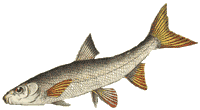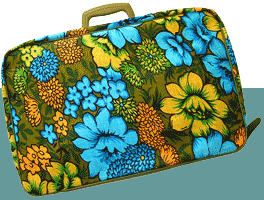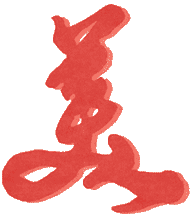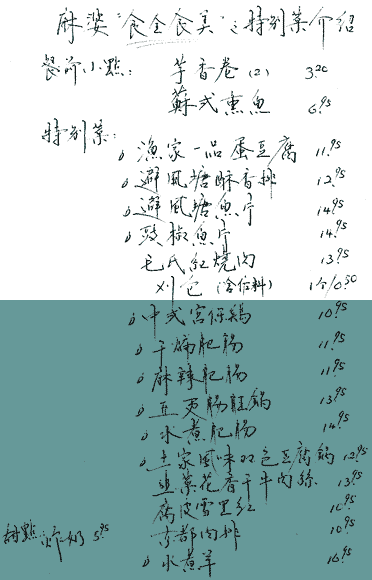
 | Lynne and her mother lived in half a clapboard house that had long ago staggered, stooped and settled where it fell, alongside a salt-parched road that backed up a hill and away from a fishing village called Brooklyn. Not the real Brooklyn; Brooklyn, Nova Scotia. No one fished from the wharf at Brooklyn anymore. No one lived in the other half of the clapboard house. |

Why couldn't you have gone to Paris? Lynne complained.
Love at first sight, was her mother's only explanation.
Whether she'd fallen for Nova Scotia or for
Lynne's father, Lynne wasn't sure.
Either way.

Winters, Lynne froze in Celsius in half a clapboard house a few minutes walk from a white sandy beach. Summers, she suffered her city cousins in Fahrenheit in an air-conditioned apartment in Queens. By now Lynne knew everyone knew that it was supposed to be the other way around. |
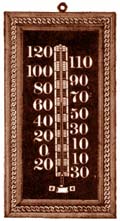 Enter a temperature. Click outside the box. |
Even the soil is richer in the States, at least south of where the glaciers got to, in places a dark mixture of three million years. Loam, sweet loam. Hardwood, gnarled and hard as history itself: hickory, many kinds of oak, flowering trees as old as dinosaurs. If bluegrass came out of such places, and Creole cooking, and the ancient, crumbling institutions of race and class, it is no surprise. In cold Canada the harshness, like the soil, is a thin cover over everything, so our music is sadder, elemental and low. Just the red soil of the Cypress Hills is rich, because it stayed above the glaciers, and is too deep to know. Robert Allen, Standing Wave |
Is New York bigger than Halifax?
Yes.
Room for me in your suitcase?
No.
I need a break, her mother said when Lynne asked if she really had to go.
Sure! We'd be happy to have her! Her aunt and uncle enthused over the phone.
So, a visit to the Big Apple, a heavily made-up stewardess said, handing Lynne an eggcup-sized glass of orange juice, somewhere over the Atlantic.

 | Lynne didn't see what the big deal was. She had flown unattended minor plenty of times. She'd spent a dozen summers in New York City already. What more could there possibly be to see? |
Two weeks down, one to go.
What more there could possibly be to see so far included: a man peeing himself on the 7 Train, a car crash on the Long Island Expressway and the bones of Lucy, the oldest woman ever, on display at the Museum of Natural History. Now all subway cars smelled like urine. The expressway was boring without the flashing lights. And Lynne went to bed worrying that bored Museum night watchmen might rearrange Lucy's bones in the night.
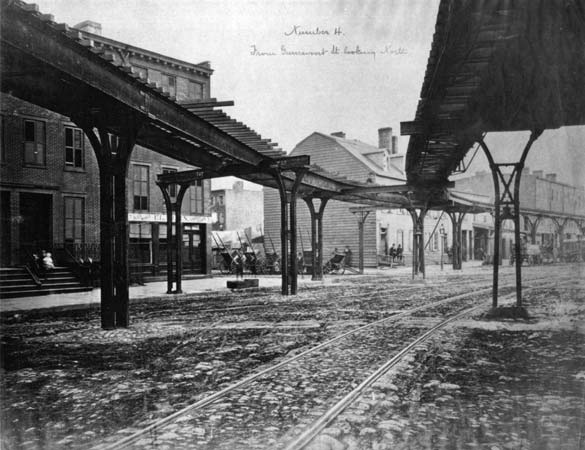
On the plus side, Lynne escaped having to climb the 345 steps of the Statue of Liberty for the third time in her life thanks to a family funeral, at which, Lynne knew no one. By Lynne's aunt's calculations, the dead woman was Lynne's mother's second cousin once removed. A blood clot in the leg, they said.
| Strange now to think of you, gone without corsets & eyes, while I walk on the sunny pavement of Greenwich Village... the rhythm the rhythm - and your memory in my head... Allen Ginsberg, Kaddish, 1961 | 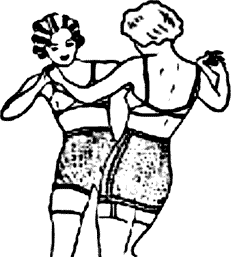 |
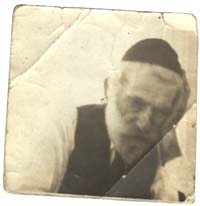 | If Lynne's aunt and uncle were indeed happy to have her visit, they had funny ways of showing it. The aunt's idea of a good time was an overcrowded street festival in what the uncle kept referring to as "the old neighbourhood" even though, as far as Lynne knew, her family had never been Italian. |
Lynne's mother was fat and spineless. She clutched at the back of her neck when she spoke.
Lynne hoped to take after neither of them.
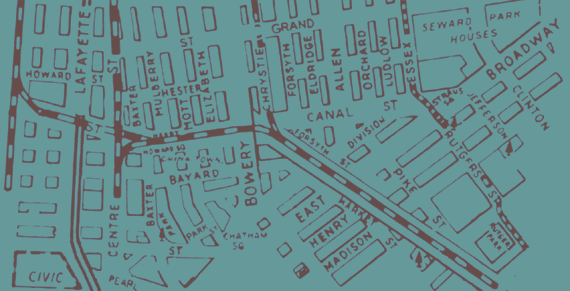
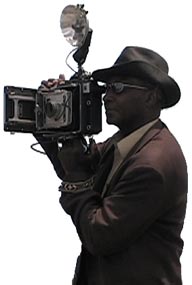

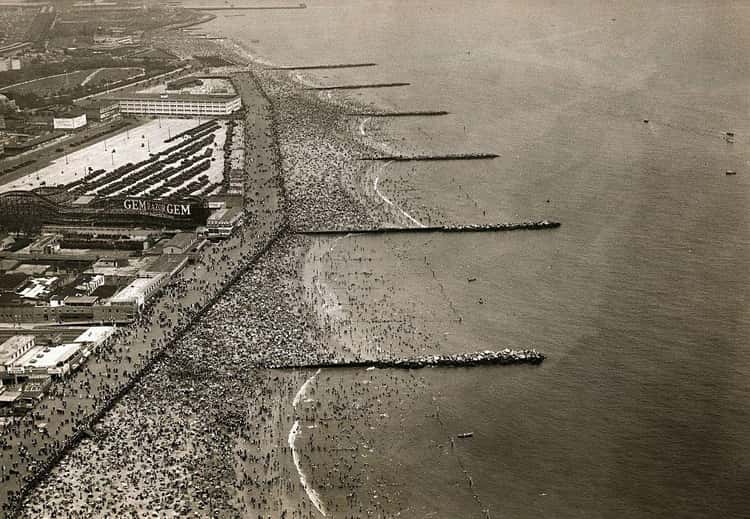
They don't anticipate it until they are down in it and when they get home
they have lost it. It is only for those few hours that we don't count."
Djuna Barnes, The People and the Sea
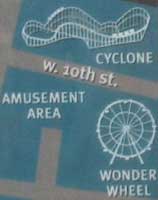


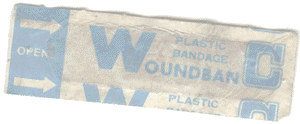
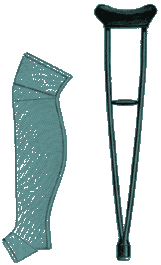
It's Chinatown, the uncle said. The cousins laughed.
It stinks, Lynne said.
She doesn't get it, the cousins sniggered.
I get it, Lynne said. Maybe she did and maybe she didn't. She practiced limping for later; a blister already blooming on her left heel.




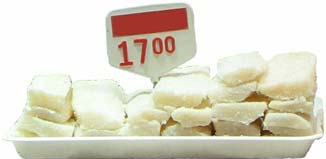 | So fresh, the aunt said. They're dead, Lynne said. Now Lynne honey, the aunt squinted at nothing-or-other through the upward-spiralling smoke of her king-sized Kool. Noon was not her best light. |
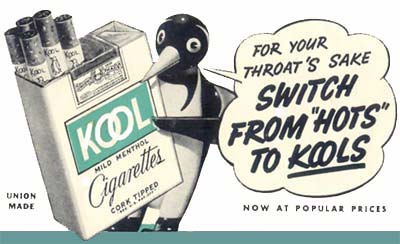

A real hole-in-the-wall, the aunt beamed at the long-lost restaurant.
Authentic, according to three column-inches in last Tuesday's New York Times.
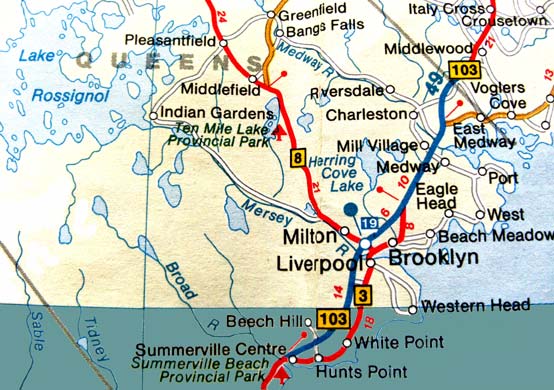
Do they even have restaurants where you live? The cousins asked without asking.
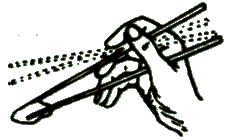

The cousins stuck the hole-in-the-wall restaurant's cheap plastic chopsticks up their noses and ate their New-York-Times-certified Chinese food with forks.
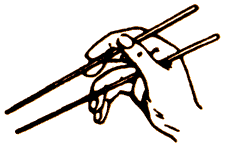

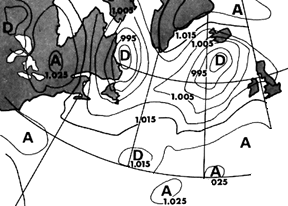
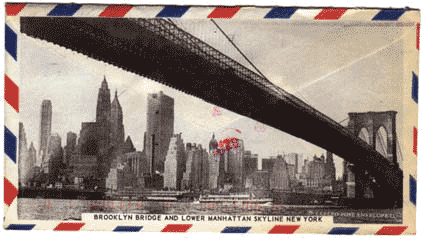

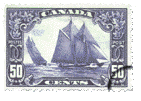
How far away is it? They taunted.
Farther than Far Rockaway?
It's farther than Fulton Street, where the Chinatown fish comes from. It's farther than you can see from the torch arm of the Statue of Liberty. Lynne and her mother lived up the hill from the far edge of a raw grey ocean that spread out for days and days.
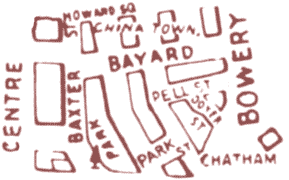
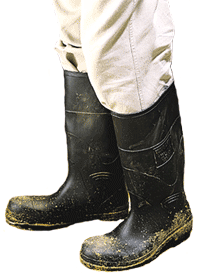
His wishing-he-were-somewhere-else rolled off of him in waves, like stink off shit, like dead off fish. He couldn't escape the street, the flies and the endless shoppers, their plastic bags bumping him as he stood - too hot, too tired, too wet - lost in enormous rubber boots, furious, alone with his limp green hose.
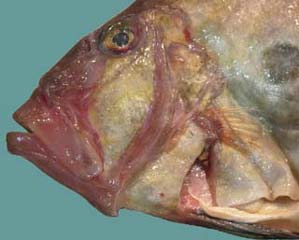


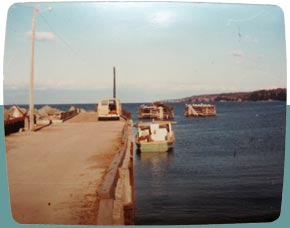
The one that got away, Lynne's mother said of him.
Or of herself. Depending on the day.
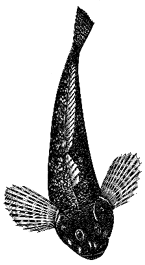
The fish stand man's eyes darted down the sidewalk and back, quicksilver - like the sun once was, glitter on the fishes' backs as they thrashed and spat when first pulled from water.
What fish
they must have been,
fishes' fish,
blue and wall-eyed
in deep cold water.
Fishs' thoughts inside their heads:
everything food or death,
for food is living.
Never still,
until netted
and hauled in.
Until then,
whole lives in motion.
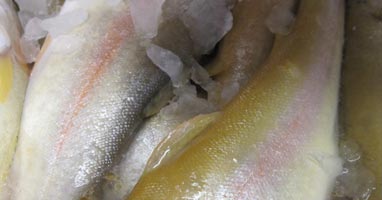

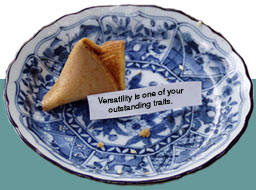
Lynne shrugged, attempted to blend in. Her back turned Chinese red; her teeth rice white, her face Formica golden. If only her school friends knew. How hot it gets. How loud. How horrible the cousins. They wouldn't beg: Room for me in your suitcase? If the heat didn't get to them first, the city cousins would eat the school friends alive.

Lynne has taken to silent screaming. At the cousins. At the waiter. At the sirens in the distance. At the shoppers streaming past the hole-in the-wall's one grim window.
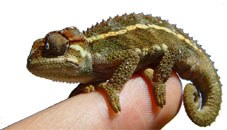
What does dear? The aunt absentmindedly crinkled and flattened, crinkled and flattened the cellophane wrapper on her Kools soft-pack.
Did you know that, when they're alive, fish can change the colour of their backs? They do it to blend in with their surroundings.
That's chameleons, the cousins said.
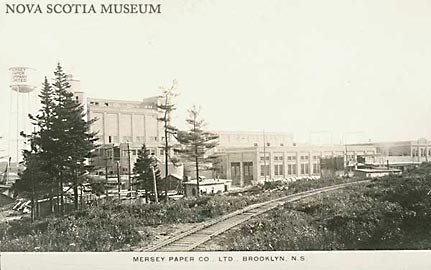

The cousins shared a room when Lynne was visiting. They locked themselves in with the television. Lynne bunked with the cat, whose name was The Wiz. Nobody Beats The Wiz, the cousins kept saying. Lynne didn't get it but wouldn't admit it and bet it had something to do with her mother not allowing her to watch television back home in Brooklyn.

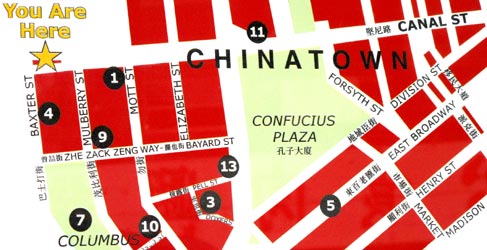




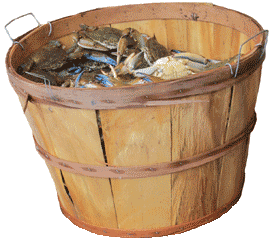
A small, live crab jumped from a basket and made a break for it, a renegade sideways dash along the grimy, broken sidewalk. Would the movement catch the uncle's eye, startle him to distraction? Could the push of the crowd or the heat of the moment repel the cousins, ricochet them all away from this spectacle, off into the day?
No. The uncle reeled his catch up from its icy fibreglass casket.
No promises, the fish said.
Jesus, Lynne says.
Now Lynne honey, says the aunt.
My last name's not Honey, Lynne grumbles. Not for the first time that day.

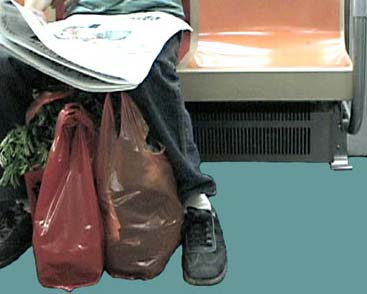
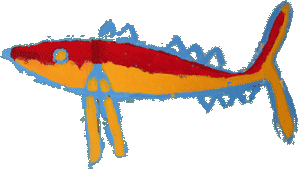
Stinks of fish, a random kid says.
Well no, it's death that stinks, the fish says. The smell of it seeps into the other groceries. The fish stares, blind, into the eye of a neighbouring potato.
It's only been this way since I've been dead, the fish explains to the lemon.
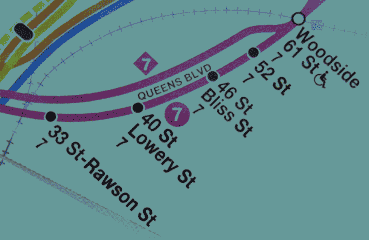
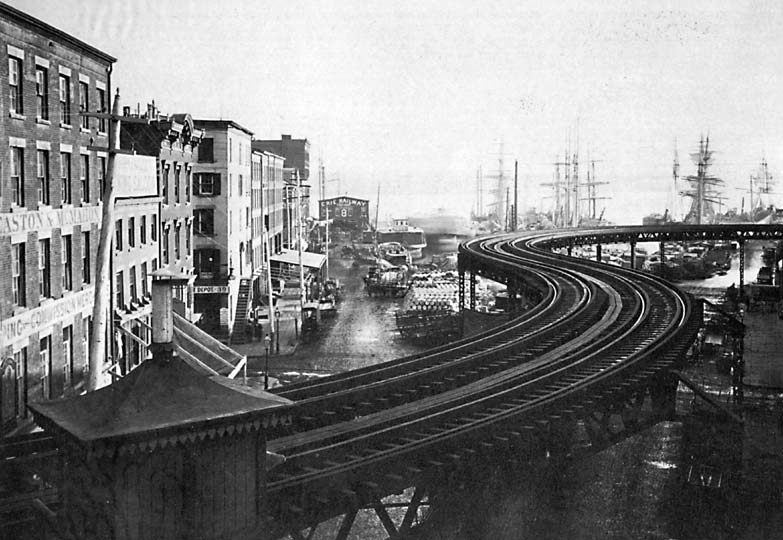
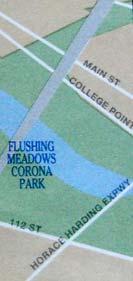





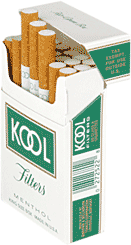
Go ahead, the fish glares up at the aunt when they get home. Cut me open on your cluttered counter top, faux marble, air-conditioned room, while you talk on the telephone sipping chardonnay and smoking the day's one-hundredth Kool.
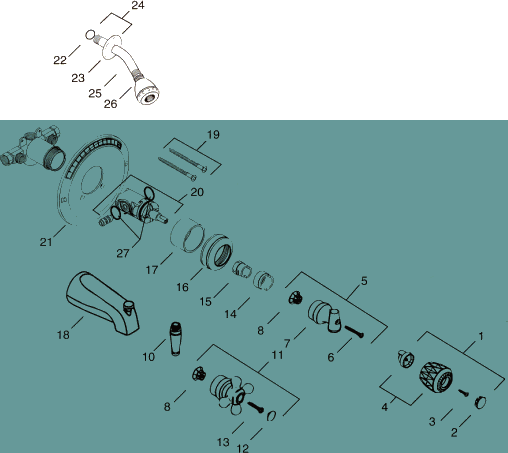

Take your time, the aunt yells through the bathroom door at him.

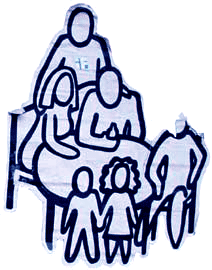
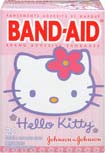
Hello Kitty, Lynne jokes around with The Wiz.
And where were you today? The Wiz sniffs at Lynne's blistered heal.
Lynne honey, come and set the table.
My last name's not... How come the boys don't have too...
Lynne stage-limps into the dining room.
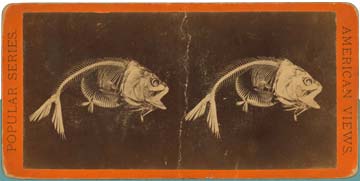

In case, at dinner, you get caught with a fishbone, hook in your throat.
Henry David Thoreau, Cape Cod
